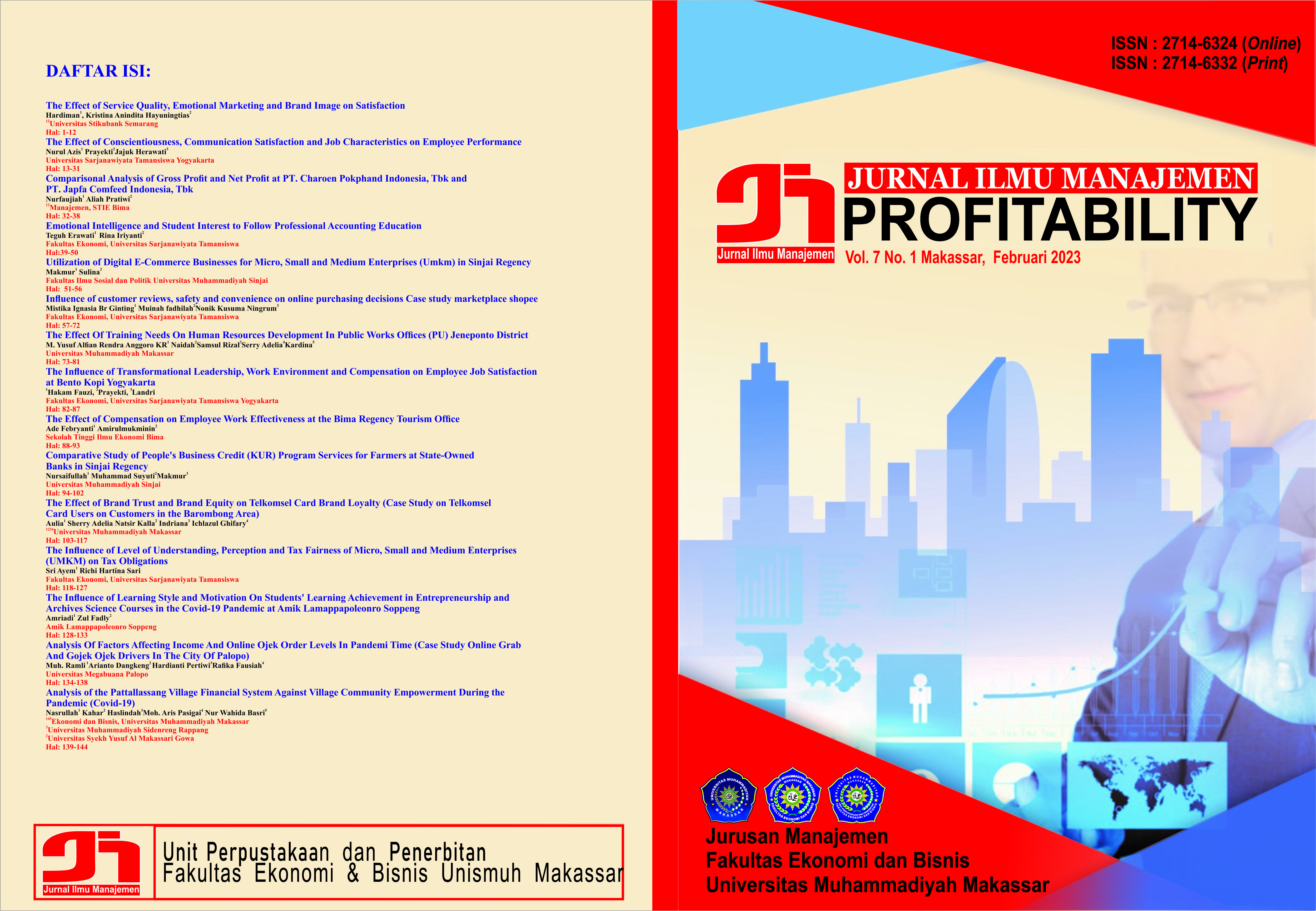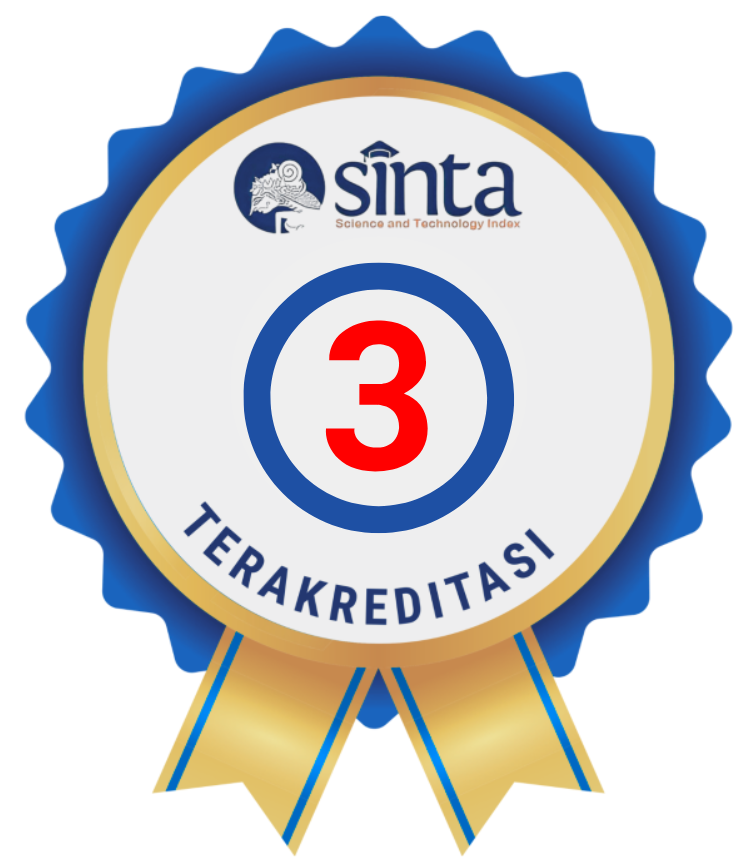The Influence of Learning Style and Motivation On Students' Learning Achievement in Entrepreneurship and Archives Science Courses in the Covid-19 Pandemic at Amik Lamappapoleonro Soppeng
DOI: https://doi.org/10.26618/profitability.v7i1.10259
Abstract
In this research process, the researcher applied a quantitative approach to the type of ex post facto (correlational) research. The examination system is carried out at the Amik Lamappapoleonro Soppeng campus. Samples or research participants are students III. Semester Computer Management Amik Lampapoleonro Soppeng Study Program 2019/2020 academic year, totaling 50 students, the variables used in this study were learning styles (X1), achievement motivation (X2) and student performance in semester III of the Study Program Entrepreneurship and Archives course Management. Researchers used data collection techniques to measure a learning style variable and achievement motivation using a Likert Scale questionnaire measuring instrument and the documentation method was used to measure student achievement learning variables. In this study using data, namely descriptive analysis as a tool to measure the Mean, Median, Mode. The product and moment system uses a correlation analysis with a significant level of 5% as a measure for the hypothesis. From the results of testing that is influential. there is a significant and positive relationship (influence) in which student learning styles and student learning in Entrepreneurship and Archives courses with a contribution of 11.4 student learning styles. This means that the student style system in learning is very good will be directly proportional to student learning achievement. There is a significant and positive influence on student achievement motivation with learning achievement in the Informatics Management study program at the Amik Lamappapoleonro Soppeng campus in the Entrepreneurship and Archives course with a contribution of 14.2% to student achievement motivation, namely that if it is very good student achievement motivation so that learning achievement students would be great. In terms of research it has a significant influence between motivation and student achievement learning styles with student achievement learning in the Entrepreneurship and Archives course on the Amik Lamappapoleonro Soppeng campus with a linear regression equationReferences
Hamalik.O, 2004. Psikologi Belajar dan Mengajar. Bandung: Sinar Baru
Sugihartono, dkk. 2007. Psikologi Pendidikan. Yogyakarta: UNY
Press Sugiyono.2011. metode penelitian pendidikan. Bandung: AlfabetHamzah,
Haji, 2016. Teori motivasi dan pengukurannya. Jakarta: Aksara Tanah
Gunawan, A..2003.GeniusLearning Strategy.Yakarta: Bibliotheksleiter.
Hamalik, O. 2004. Psikologi Belajar dan Mengajar.Bandung:Cahaya baru.
Sugihartono dkk. 2007. Psicologia educativa. Yogyakarta: UNY Press.
Sugiyono.2011.Educational Research Methods.Bandung: Alphabet.
Downloads
Published
Issue
Section
License
Authors who publish with Jurnal Ilmu Manajemen Profitability agree to the following terms:
Copyright of the articles remains with the authors.
Authors grant the journal the right of first publication with the work simultaneously licensed under a Creative Commons Attribution-NonCommercial 4.0 International License (CC BY-NC 4.0). This license allows others to:
Share (copy and redistribute the material in any medium or format)
Adapt (remix, transform, and build upon the material)
as long as they give appropriate credit to the original author(s) and source, provide a link to the license, and indicate if changes were made. Non-commercial use only.
Authors are permitted to:
Distribute their published work (e.g., post it to an institutional repository or publish it in a book), with an acknowledgment of its initial publication in this journal.
Enter into separate, additional contractual arrangements for the non-exclusive distribution of the journal’s published version of the work (e.g., post it to a class website or institutional archive).
For permissions to use the content published in this journal beyond the scope of the license (e.g., commercial purposes), please contact the editorial office via the journal email.
License Details:
This journal is licensed under a Creative Commons Attribution-NonCommercial 4.0 International License (CC BY-NC 4.0).












